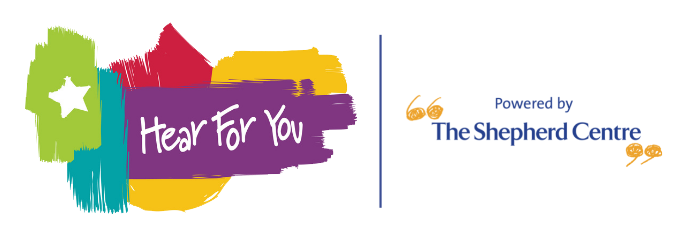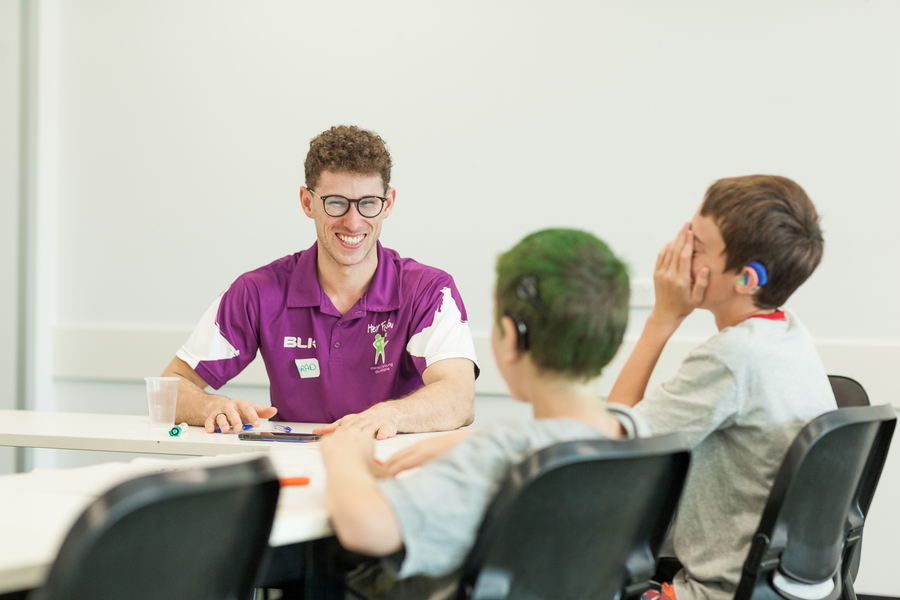
This article was first published in the Airnorth, Together We Fly Magazine, and republished with permission.
Click here to read the article in PDF Author: Danielle Gusmaroli
Making Themselves Heard
A TEENAGE boy holds court as he recounts an amusing scenario about his cochlear implant to a room of riveted young deaf people.
“The problem is because it’s magnetic, sometimes your head gets stuck to the fridge,” Thomas gamely volunteers. The deaf and hearing-impaired youngsters fold into giggles and unfamiliarity in the room disappears.
They are at a Hear For You Rock My World Blast mentoring workshop in Canberra, designed for young people to instil and empower the belief they can realise whatever goal they set their hearts on, connecting with others who understand the dilemmas of deafness.
“One boy in my group said it was hard to hear in class, but one strategy was good posture and to face upwards – that gives you the positive mindset to ask someone to repeat themselves,” says 12-year-old Jasper Jackson, who has mild unilateral hearing loss in one ear and wears an FM hearing sound amplifier and hearing aid. “I learned that if you don’t make eye contact, it’s harder to hear and concentrate. Attending the program was an opportunity to meet people like me who understand the challenges and frustrations and to talk about funny things. I could relate to what they were going through and they could relate to me.”
A not-for-profit charity, Hear For You, was set up 11 years ago by Olivia Andersen, who was diagnosed as profoundly deaf at eight months. Because of her own challenges with communication during high school, Olivia recognised the need for young people with hearing impairments to get the help they need when growing up.
Since then, Hear For You has hosted mentoring sessions across Australia and New Zealand, transforming the lives of more than 900 deaf and hearing-impaired teenagers. The success of these sessions relies on volunteer mentors including doctors, lawyers, shop owners, animators, transport designers, social scientists, sports managers, Deaflympians, parents and community leaders.
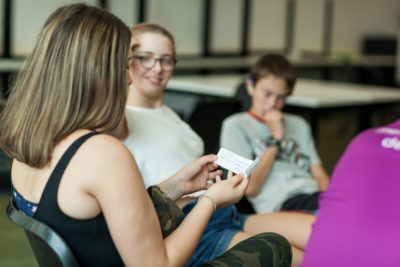
The programs are mostly held in Sydney, Brisbane and Melbourne, with two-day (one weekend) rural programs hosted in areas around Tamworth, Townsville, Rockhampton, Toowoomba, Newcastle and Wollongong – where services for the deaf are in shorter supply.
The attendees, aged between 12 and 18, take part in activities and discuss issues they face as teenagers at school as well as technology and social relationships. These workshops are aimed at minimising the likelihood of mental health and social isolation issues in deaf and hearing impaired teenagers.
“Your environment can completely affect how much you hear,” explains mentor David Romanowski, 31, a business intelligence and data analyst at Macquarie University who was born profoundly deaf.
“It’s a big thing for teenagers to miss out on hearing. They have to ask people to repeat themselves, and in doing that they can become more shy and secluded. The workshops are geared at improving social skills, confidence and social interaction, as well as exploring what it is to be deaf and how one associates with it; if you’re comfortable with who you are you can grow as a person rather than withdraw,”.
David explains it’s important that young people with hearing impairments don’t feel alone, and in rural areas that can easily happen. The mentors know first hand what challenges young deaf people must overcome, which means they can offer advice based upon experience.
The mentors know first hand what challenges young deaf people must overcome, which means they can offer advice based upon experience.
“The point of our programs is we go to rural areas and save young people and their families the effort of travelling to cities to get help,” he explains. We facilitate an environment for young people and their parents to connect with others who share similar experiences. It’s hugely rewarding when you see how teenagers are inspired and uplifted after attending one of our workshops.”
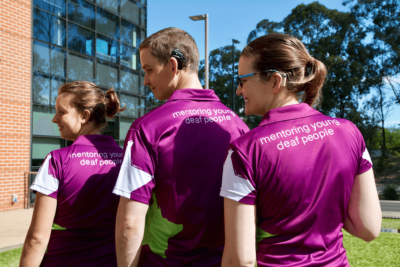 Parents are encouraged to get involved too and are an integral part of the mentoring workshops. For Jasper’s mother, Gemma, knowing her son is not alone and being able to share her concerns with other parents came as a huge relief. “This little boy is living in a world not made for him”, she says. “He has to keep up with hearing people. He spent the full weekend at the workshop in Canberra with the hearing aid volume loud, and when someone else’s hearing aid batteries ran out – and it wasn’t his – the penny dropped. He was so happy, he realised he’s not alone in having to deal with things like this.”
Parents are encouraged to get involved too and are an integral part of the mentoring workshops. For Jasper’s mother, Gemma, knowing her son is not alone and being able to share her concerns with other parents came as a huge relief. “This little boy is living in a world not made for him”, she says. “He has to keep up with hearing people. He spent the full weekend at the workshop in Canberra with the hearing aid volume loud, and when someone else’s hearing aid batteries ran out – and it wasn’t his – the penny dropped. He was so happy, he realised he’s not alone in having to deal with things like this.”
“Being able to talk to other parents was a relief and a great way to find support. I even asked them to tell me it’s going to be ok, and we’re going to get through it. Jasper had a late diagnosis, and he was eight when we found out about his hearing loss. For years he showed severe difficulties at school and we were on the verge of an ADHD inattentive diagnosis, but we now know it was the hearing loss.” This is a huge issue for deaf teenagers within their schools across Australia.
13-year-old Imogen Brewer, who has mild loss in her left ear, is profoundly deaf in her right ear and was fitted with her cochlear implant at nine years old, attended her first workshop with her mum Shannon in Canberra this March. “It was nice to talk to other girls about problems at school and know I’m not the only one missing out on conversations,” she says. “There aren’t many deaf people in Canberra so it was nice to talk to other kids who experience the same issues as me. It helps to have someone who gets you – when people get you, you feel better.
“I learned the confidence to tell people I can’t hear them and to ask them to repeat themselves. I also learned that in group work, when it’s hard to hear, you can use different devices and move into a quieter area.“
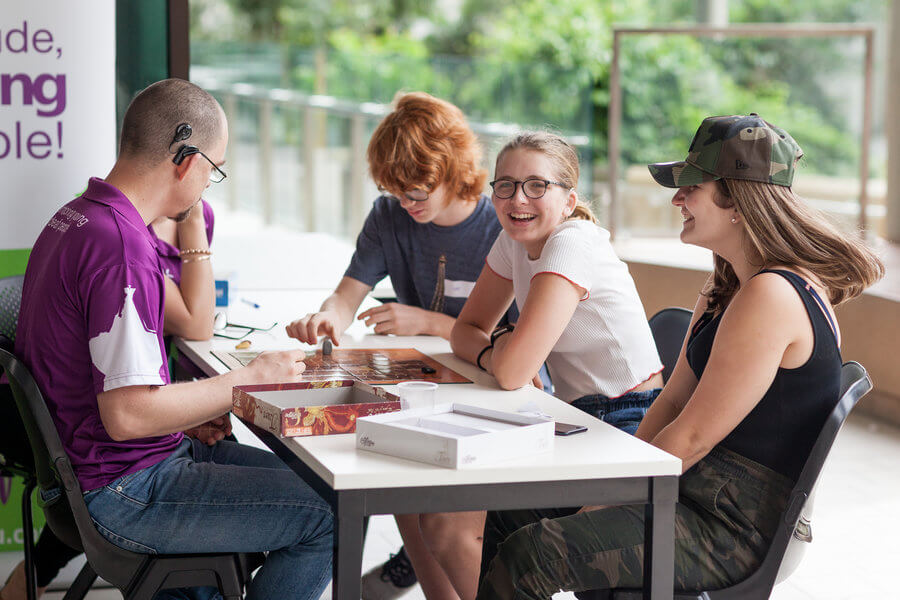
Meanwhile, for Shannon, advice on how her daughter will live independently when she leaves home was invaluable. “Will she hear the fire alarm, will she gain the confidence to ask a member of the public if she’s lost?” she asks. “I met other parents with the same concerns. It’s good to know you’re not battling alone.”
If you or someone you know would be interested in learning more about the mentoring programs and workshops run in rural and regional areas, please visit www.hearforyou.com.au

